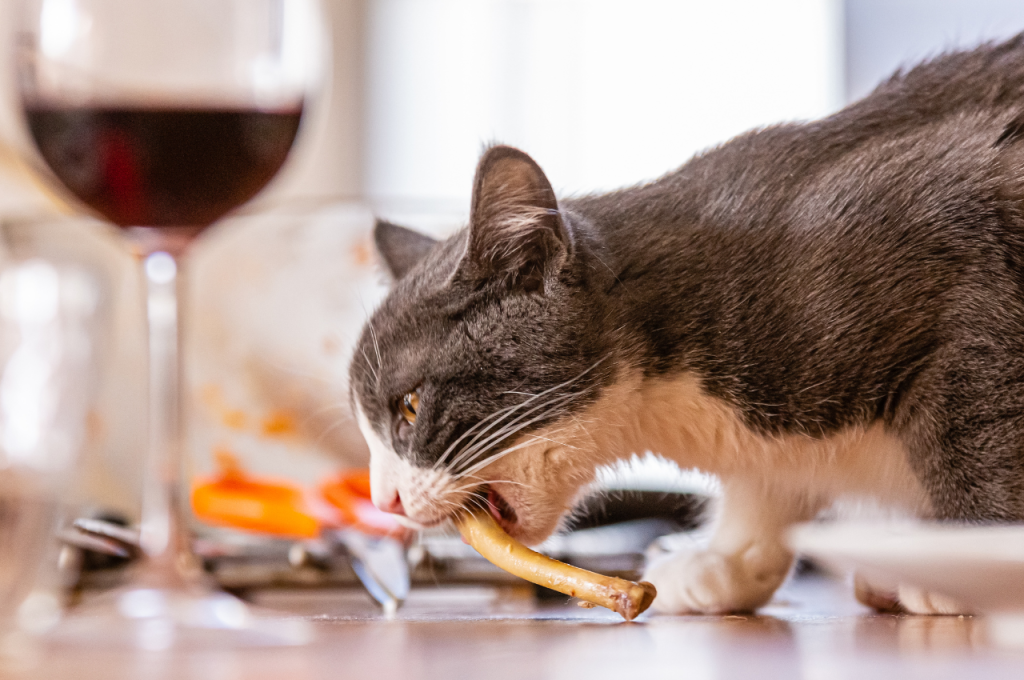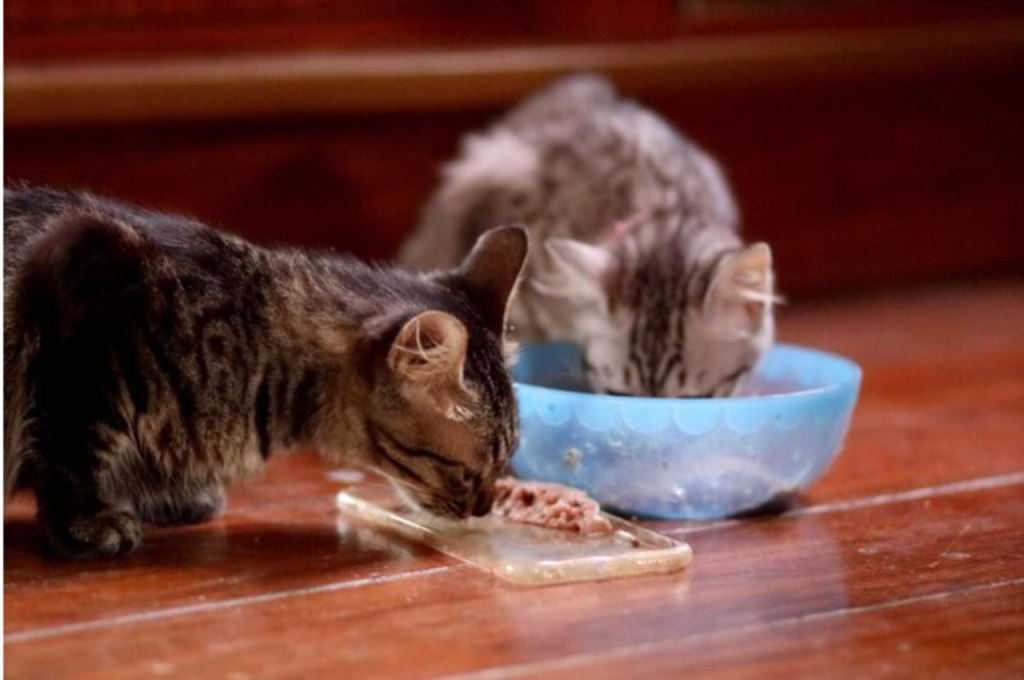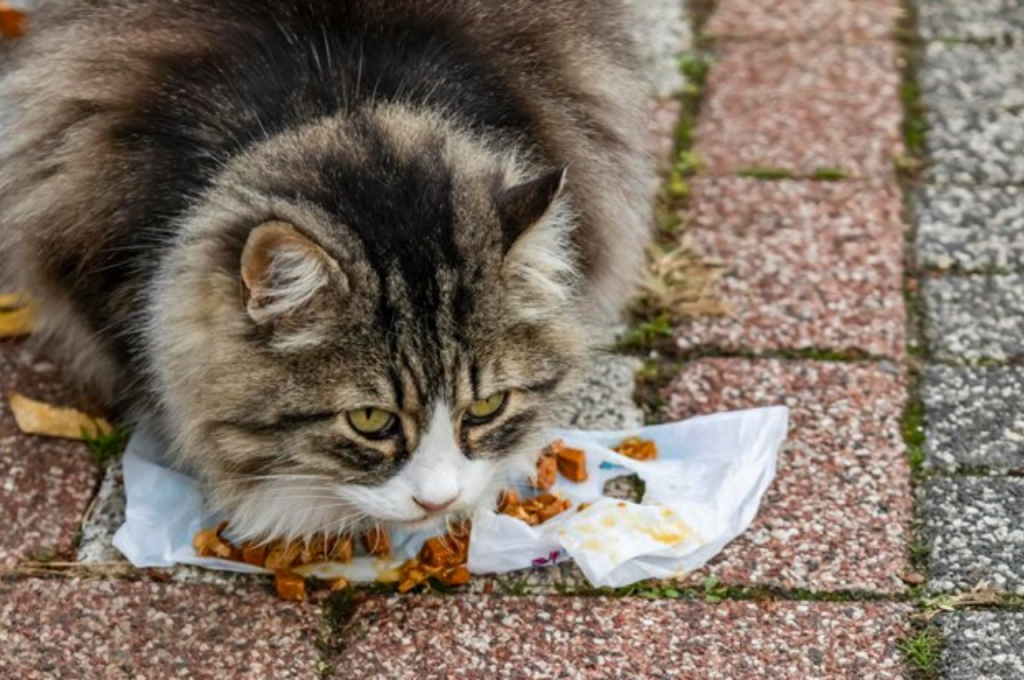Yes, you can feed your cat chicken every day as long as it is cooked and balanced with other nutrients. Chicken is a good source of protein for cats and can be a part of their daily diet.
However, it is important to also provide variety in their meals to ensure they get all the essential nutrients they need for optimal health. Cats need a balanced diet that includes proteins, fats, vitamins, and minerals, so incorporating a mix of different protein sources along with chicken is ideal.
Remember to consult with your veterinarian to determine the best diet plan for your individual cat’s needs.
The Importance of A Balanced Diet for Cats
Ensuring your cat receives a balanced diet is crucial for their overall health and well-being. Cats, being obligate carnivores, require specific nutrients to thrive. A balanced diet should include high-quality protein sources, essential vitamins and minerals, and sufficient hydration.

Nutritional Needs of Cats
Cats need a diet rich in protein, fat, vitamins, and minerals to support their bodily functions and maintain optimal health.
- Protein serves as the building blocks for muscle and tissue repair.
- Fat provides essential energy for daily activities.
- Vitamins and minerals are necessary for proper growth and immune function.
Effects of Imbalanced Diet on Cats
An imbalanced diet can lead to various health issues in cats, such as:
- Obesity: Lack of proper nutrients can lead to excessive weight gain.
- Nutritional deficiencies: Insufficient nutrients can result in weakened immunity and organ malfunctions.
Feeding your cat chicken every day can be suitable as long as it is part of a well-rounded diet that meets all their nutritional needs.
Chicken as A Source of Nutrition for Cats
When it comes to choosing the right diet for your feline friend, it’s important to consider the source of nutrition and the overall health benefits. Chicken is a popular choice for cat owners, but is it suitable for daily consumption? Let’s explore the nutritional benefits of chicken for cats.
Protein in Chicken
Cats thrive on a diet rich in protein, and chicken provides an excellent source of this essential nutrient. The high-quality protein found in chicken is easily digestible for cats and can support their overall health and energy levels. By incorporating chicken into your cat’s daily diet, you can ensure they receive the necessary protein to maintain a healthy and active lifestyle.
Vitamins and Minerals in Chicken
Chicken is not only a rich source of protein, but it also contains essential vitamins and minerals that are beneficial for your cat’s well-being. Chicken is a natural source of vitamin B6, niacin, phosphorus, and selenium, all of which play a vital role in supporting your cat’s immune system, brain function, and overall development.
Feeding Chicken to Cats daily
Keeping your cat healthy and well-fed is a top priority for any responsible pet owner. When it comes to their diet, it’s essential to provide them with a balanced meal that suits their nutritional needs. A popular question among cat owners is whether it is okay to feed their feline companion chicken every day.
Considerations for Daily Feeding
Feeding your cat chicken as a part of their daily diet can be beneficial, provided you take certain considerations into account. Keep in mind the following factors when incorporating chicken into your feline friend’s daily meals:
- Nutritional balance: Cats require a well-balanced diet that includes proteins, fats, vitamins, and minerals. While chicken is a good source of protein, it’s important to ensure that their overall nutritional needs are being met. Include other essential food groups such as carbohydrates, vegetables, and commercial cat food to achieve balance.
- Food allergies: Some cats may have food sensitivities or allergies to chicken or specific ingredients in chicken. If your cat shows any signs of digestive upset or allergic reactions after consuming chicken, it’s best to consult your veterinarian and consider alternative protein sources.
- Food preparation: Ensure that the chicken is cooked thoroughly to eliminate any harmful bacteria. Raw chicken or undercooked chicken can pose health risks to your cat and even lead to foodborne illnesses.
Quantity and Frequency of Chicken Consumption
Determining the appropriate quantity and frequency of chicken consumption for your cat relies on their age, weight, activity level, and overall health. Generally, it is recommended to feed cats a fixed portion size based on their weight, preferably in consultation with your veterinarian. Here’s a handy table to help you gauge the appropriate serving size:
| Cat Weight | Chicken Portion Size |
| 5 pounds (2.3 kg) | 1 ounce (30 grams) |
| 10 pounds (4.5 kg) | 2 ounces (60 grams) |
| 15 pounds (6.8 kg) | 3 ounces (85 grams) |
In terms of frequency, chicken should be offered as a supplement to your cat’s regular diet and not as the sole source of nutrition. Vary their diet with other proteins, vegetables, and commercial cat food to ensure they receive a well-rounded meal.
Remember, while chicken can be a healthy and delicious addition to your cat’s diet, it is crucial to maintain a balanced and varied meal plan that caters to their specific nutritional needs. Always consult with your veterinarian to determine the most suitable feeding routine for your feline friend.
Variety in A Cat’s Diet
When it comes to feeding your cat, providing a variety of foods is essential. Cats are obligate carnivores, which means their bodies are designed for a meat-based diet. One commonly asked question is whether it’s okay to feed cats chicken every day. While chicken can be a healthy part of a cat’s diet, it’s important to ensure they get a well-rounded nutritional profile.

Importance of Dietary Variety
Cats must have a diverse range of food options to meet their nutritional needs. Offering a variety of proteins, such as chicken, beef, fish, and turkey, provides a balanced amino acid profile. Remember that different proteins contain different essential amino acids, which are fundamental building blocks for maintaining a cat’s overall health.
Moreover, a varied diet can also help prevent food allergies or sensitivities from developing. By rotating different protein sources, you decrease the likelihood of your cat developing an adverse reaction to a certain type of food. This can be particularly beneficial for cats with sensitive stomachs or known food intolerances.
Recommended Foods to Rotate with Chicken
If you’re considering introducing more variety into your cat’s diet, several other protein sources can be rotated with chicken to ensure a well-rounded nutritional intake. These include:
- Beef: Lean cuts of beef, such as ground beef or diced meat, can offer cats a different taste and texture while providing essential nutrients like iron and zinc.
- Fish: Fish, such as salmon or tuna, can be a great addition to a cat’s diet. It contains essential omega-3 fatty acids, which can support a healthy coat and skin.
- Turkey: Turkey is another lean protein source that can be rotated with chicken. It provides cats with high-quality amino acids and can be a great option for cats with sensitivities to other types of meat.
By rotating these protein sources, you can ensure that your cat receives a wide array of essential nutrients needed for optimal health. However, it’s important to note that any changes to your cat’s diet should be done gradually to avoid any potential digestive upset.
Health Risks and Concerns
When it comes to feeding your cat, it’s important to be mindful of their diet. While chicken is generally a popular source of protein for cats, it’s essential to consider the potential health risks and concerns associated with feeding them chicken every day.
Obesity and Chicken Consumption
Feeding your cat chicken every day can lead to obesity. Chicken is often higher in fat content, which can contribute to weight gain in cats. Cats that are overweight are at a higher risk of developing health issues such as diabetes, joint problems, and heart disease.
Potential Allergies and Sensitivities
Cats, like humans, can develop allergies and sensitivities to certain foods, including chicken. Regular consumption of chicken can lead to digestive issues, skin problems, and even respiratory problems in some cats. It’s important to monitor your cat for any signs of allergic reactions if you are feeding them chicken daily.
Preparing Chicken for Your Cat
Chicken can be a healthy addition to your cat’s diet, but it’s important to feed it in moderation and ensure it’s prepared properly to meet their nutritional needs. It’s best to consult with your veterinarian to determine if feeding your cat chicken every day is suitable for their specific dietary requirements.
Cooked vs. Raw Chicken
When considering feeding chicken to your cat, it’s essential to prioritize safety. Cooked chicken is generally safer for cats to consume compared to raw chicken due to the reduced risk of bacterial contamination and potential foodborne illnesses.
Seasoning and Preparation Tips
Avoid seasoning for your cat’s chicken, stick to plain cooking methods. Preparing Chicken for Your Cat Cooked chicken is better than raw chicken for your cat’s diet due to safety reasons. Cooked vs. Raw Chicken Ensure the chicken is fully cooked before serving it to your cat. Seasoning and preparation tips avoid adding seasoning or spices when preparing chicken for your cat. When cooking chicken for your feline friend, opt for plain and simple preparation methods.
Consulting A Veterinarian
Seeking guidance from a veterinarian before making dietary choices for your cat is essential for ensuring their overall health and well-being. Veterinarians can provide valuable insights into your cat’s specific nutritional needs and any dietary restrictions they may have, helping you make informed decisions to support their health.
Importance of Veterinary Guidance
Consulting a veterinarian is essential to ensure that your cat receives a suitable diet tailored to its individual needs. By seeking professional advice, you can provide your cat with the best possible diet to support its overall health and well-being.
Customized Diet Plans for Your Cat
A veterinarian can create a tailored meal plan that suits your cat’s age, activity level, and any health conditions they may have. By seeking professional guidance, you can ensure that your feline companion receives balanced and tailored nutrition tailored to their unique circumstances.
Monitoring Your Cat’s Health and Well-being
Your cat’s health is paramount when it comes to their diet. While chicken can be a healthy part of their daily meals, it’s essential to monitor their health and well-being to ensure they are getting all the nutrients they need.

Signs of Nutritional Deficiencies
- Lethargy
- Weight loss
- Dull coat
- Digestive issues
- Changes in behavior
Your cat’s body language and behavior can provide telltale signs of any nutritional deficiencies. Keeping an eye out for these signs can help you detect any potential issues before they escalate.
Regular Health Check-ups
Regular check-ups are crucial to ensure your cat’s overall well-being. Schedule routine visits with your veterinarian to monitor your cat’s health. These check-ups can help detect any health issues early on, allowing for prompt intervention if needed.
Conclusion
To sum up, chicken can be a healthy option for your cat’s everyday diet, but it should be balanced with other nutrients. Be mindful of your cat’s individual needs and consult with a veterinarian for tailored feeding guidance.
With moderation and consideration, your feline can indeed enjoy chicken regularly as a part of a well-rounded diet.
